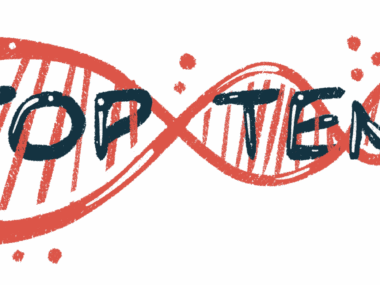PPMD 2024: PTC to seek FDA approval of ataluren for DMD
Company plans filing soon to treat DMD caused by nonsense mutations
Written by |

Note: This story was updated Oct. 22, 2024, to remove a reference to the therapy being pulled from the market in Europe. Although this was the initial recommendation, the therapy has remained available in Europe.
PTC Therapeutics plans to soon ask the U.S. Food and Drug Administration (FDA) to approve ataluren as a treatment for Duchenne muscular dystrophy (DMD) caused by nonsense mutations.
“We are thrilled to announce that we are moving forward with the submission of a new drug application for ataluren here in the U.S.,” Jonathan Blaize, PhD, medical science liaison at PTC, said at the Parent Project Muscular Dystrophy (PPMD) annual conference, held June 27-30 in Orlando, Florida. “The company has previously stated that we plan to file this submission by the middle of the year, and I’m happy to announce that we are on track to complete that as announced.”
Duchenne is caused by mutations in the gene that encodes instructions to make dystrophin, a protein that is essential for muscle health. The lack of dystrophin ultimately leads muscles to accumulate excessive damage, driving muscle weakness and other symptoms.
In up to 15% of patients, DMD is caused by a nonsense mutation, which is a change in the genetic code that leads to a stop signal in the middle of the gene, sort of like putting a period midway through a sentence. As a consequence, cells only make a small piece of protein that cannot function, rather than the whole functional dystrophin protein.
Through the stop sign
Ataluren is an oral therapy that aims to allow cells to read through the stop signal to make a full-length protein. In a Phase 3 trial (NCT03179631), ataluren outperformed a placebo at slowing the decline in walking ability in DMD patients, and data from an observational study (NCT02369731) in multiple countries indicated the therapy delayed the loss of walking ability.
Blaize said the data collectively “show a consistent safety and tolerability profile, and … clinically meaningful and statistically significant preservation of muscle and functional ability.”
Ataluren was conditionally approved in Europe in 2014, under the name Translarna, but earlier this year European authorities declined to renew the conditional approval. The European Medicines Agency cited issues interpreting available observational data, as well as concerns that the treatment hadn’t shown the expected benefits in boys with progressive decline in walking ability in the Phase 3 trial.
Ataluren has been up for FDA approval before. The agency rejected an application in 2017, saying there wasn’t enough evidence for approval. The company said its new application comes after further discussions with the FDA.
Note: The Muscular Dystrophy News Today team is providing virtual coverage of the Parent Project Muscular Dystrophy Annual Conference (PPMD) June 27-29. Go here to see the latest stories from the conference.






